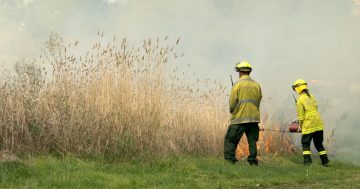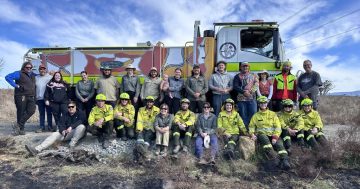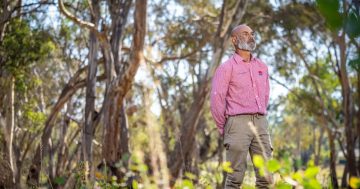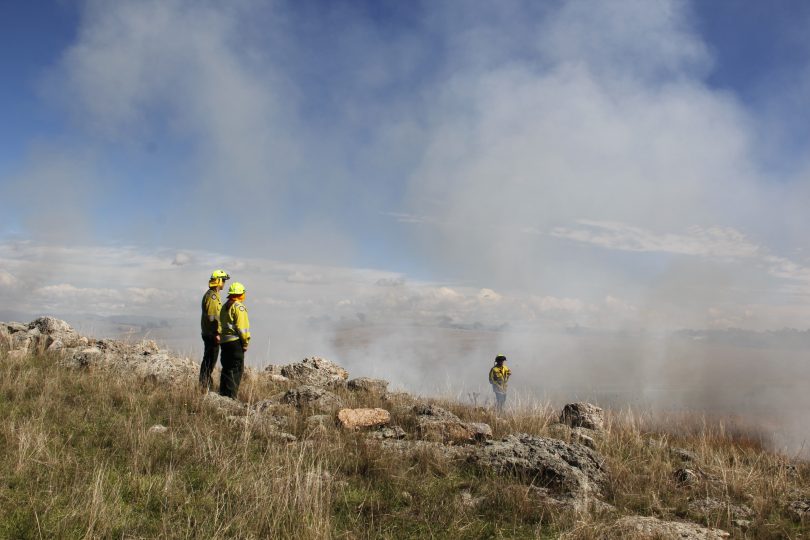
Cultural burning practices are a source of pride for ACT Indigenous rangers. Photo: Supplied.
After the summer’s horror bushfire season, emergency service leaders around Australia began turning their attention to Indigenous concepts like ‘cool-burning’ and ‘traditional hazard reduction’ to manage future fire risk.
But the intricacies and cultural significance of Indigenous burning practices are often misunderstood, as are the benefits of traditional land management, as Indigenous Parks and Conservation Service (PCS) rangers explained to Region Media,
“It is empowering. It gives [us] a sense of self and pride,” Tidbinbilla Indigenous Field Officer Kie Barratt said.
“Identity is also a big one for me. Growing up, a lot of mob did not know their culture or who they were, and it gives them that belief, identity and pride in themselves knowing that the country is looked after right by our people.
“When you walk away from doing a burn, you go ‘geez, we have just done a good thing there’. It is a good feeling.”
Sally Moylan, the PCS Bushfire Operations Plan Team Leader, says the confluence of traditional cultivation practices and modern hazard reduction techniques is the most important factor when incorporating perspectives from local Indigenous rangers.

Sally (left), Kai (middle) and Kristy (right) – Indigenous Parks and Conservation Service (PCS) rangers. Photo: Dominic Giannini.
“For a long time being Aboriginal was not a good thing, and now we have an opportunity and cultural responsibility to carry our ancestors into this space,” she said.
“What we value the most is Ngunnawal knowledge and Ngunnawal presence helping us so we learn from each other.
“We do have timeframes so if we burn like we would culturally we could be there for weeks.”
Cool burning involves low-intensity fires that rely on the environment and is pushed along with vines or grass. There are no lines of fire and drip torches are also avoided because the chemicals used to ignite and provide fuel for the fire could also further damage the environment.
“What needs to burn will burn fast,” Kai said. “If it burns slower it means it is not meant to burn.”
Kai contrasts traditional fire methods which rely on feedback from the bush with a checklist approach to fuel management.
“You have to read the country and pick the right time to burn. Saying, ‘we need to check this off now’ – well bugger that, that is not ‘mob burn’. There is a time and place for heaps of fire, and a time and place for smaller burns.
“What we want to do is go in the direction where ‘cultural burns’ are just called ‘burns'”.
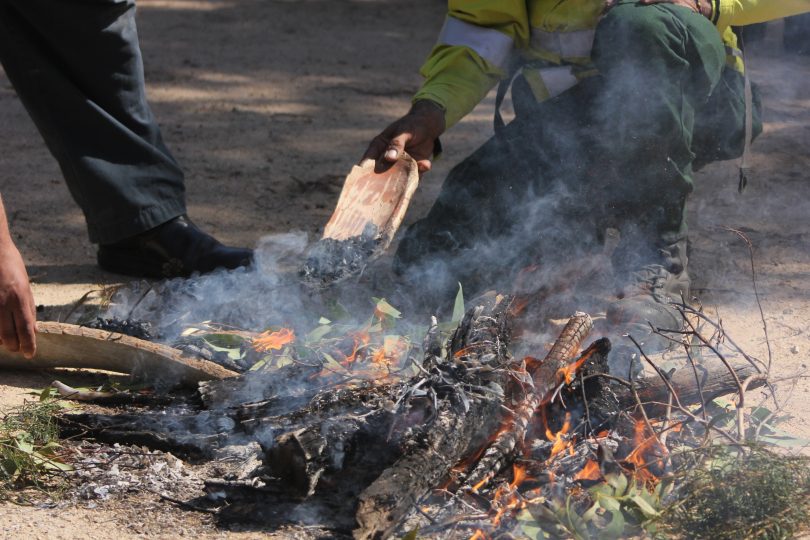
Cool burning involves a low-intensity fire that is helped along by grass, leaves and vines. Photo: Supplied.
Kristi Lee, an Indigenous Field Officer at Tidbinbilla, says it will take generations to get the land back into balance, and that will mean getting the wider community involved.
“The good thing about cultural burns is that it also refreshes your cultural memory,” she said. “With our family history, a lot of the older generation are really proud of the job that I am doing.
“We lost a lot of our culture and language and even though I am not on country, the younger generation coming through re-vitalises cultural practice and who we are.”
Both the Royal Commission into National Natural Disaster Arrangements and the ACT review of the bushfire season are exploring the role that Indigenous cultural practices can play in future land management and hazard reduction activities.












